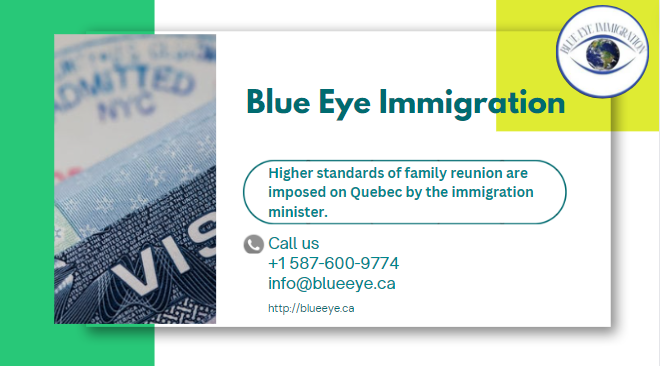The federal immigration minister, Marc Miller, has decided to do something about the rates of family reunion in Quebec.
Speaking to his counterpart Minister Christine Fréchette in Quebec, Minister Miller outlined the steps he would take to ensure that family reunification rates in the province met his requirements in a letter that Radio Canada was able to receive.
“I have chosen to direct my ministry to handle applications for permanent residence from family reunification applicants who have been issued a Quebec Selection Certificate (CSQ) by your ministry, which is roughly 20,500 applications,” Miller penned to Fréchette.
Miller’s decision shows potential jurisdictional conflicts, and it comes after months of negotiations between the federal government and the province of Quebec over the former’s strict immigration objectives for annual family reunion. The family reunification objectives for Quebec are set at around 10,000 immigrants annually, which Minister Miller called “artificially low” in his letter. Many of these immigrants must wait significantly longer than the federal service requirements in order for their application to be approved.
Family reunion in Quebec takes an average of 24 to 26 months, which is around 10-15 months longer than the federal government’s criteria, according to a July 2023 CTV News Montreal story. Minister Miller reaffirmed his promise to respond to these applications by the customary federal timeframes, even if it meant surpassing the immigration caps set by the Quebec government.
The reasons that set Quebec apart from the rest of Canada
The provincial government of Quebec took many actions to obtain more control over immigration between 1971 and 1991, mostly in an effort to maintain the francophone culture and identity of the province.
The Gagnon-Tremblay-McDougall accord, sometimes referred to as the Quebec-Canada Accord, was the result of these modifications. This law gave the province the ability to fully screen immigrants entering its boundaries and to integrate and francize them once they arrived.
Currently, Quebec has the most legal authority over immigration of any Canadian province or territory. This increases the significance of Miller’s judgment since it may be the sole instance in which the federal government has enforced an immigration order on Quebec since the signing of the Quebec-Canada Accord.
In accordance with this legal interpretation, Quebec responded to Miller’s decision by saying, “The federal approach does not respect the will of the Quebec nation,” and Minister Fréchette’s office echoed the need for the federal government to respect Quebec’s control over its own immigration. This can’t happen. […] An important consequence of such a ruling would be the permanent immigration thresholds in Quebec.
The office met with advocacy groups for family reunification in the province in December, and the Quebec immigration ministry added that it had already been looking into options for reunification independent of Minister Miller’s request—that would respect the special needs and decision-making of Quebec’s immigration policies.
